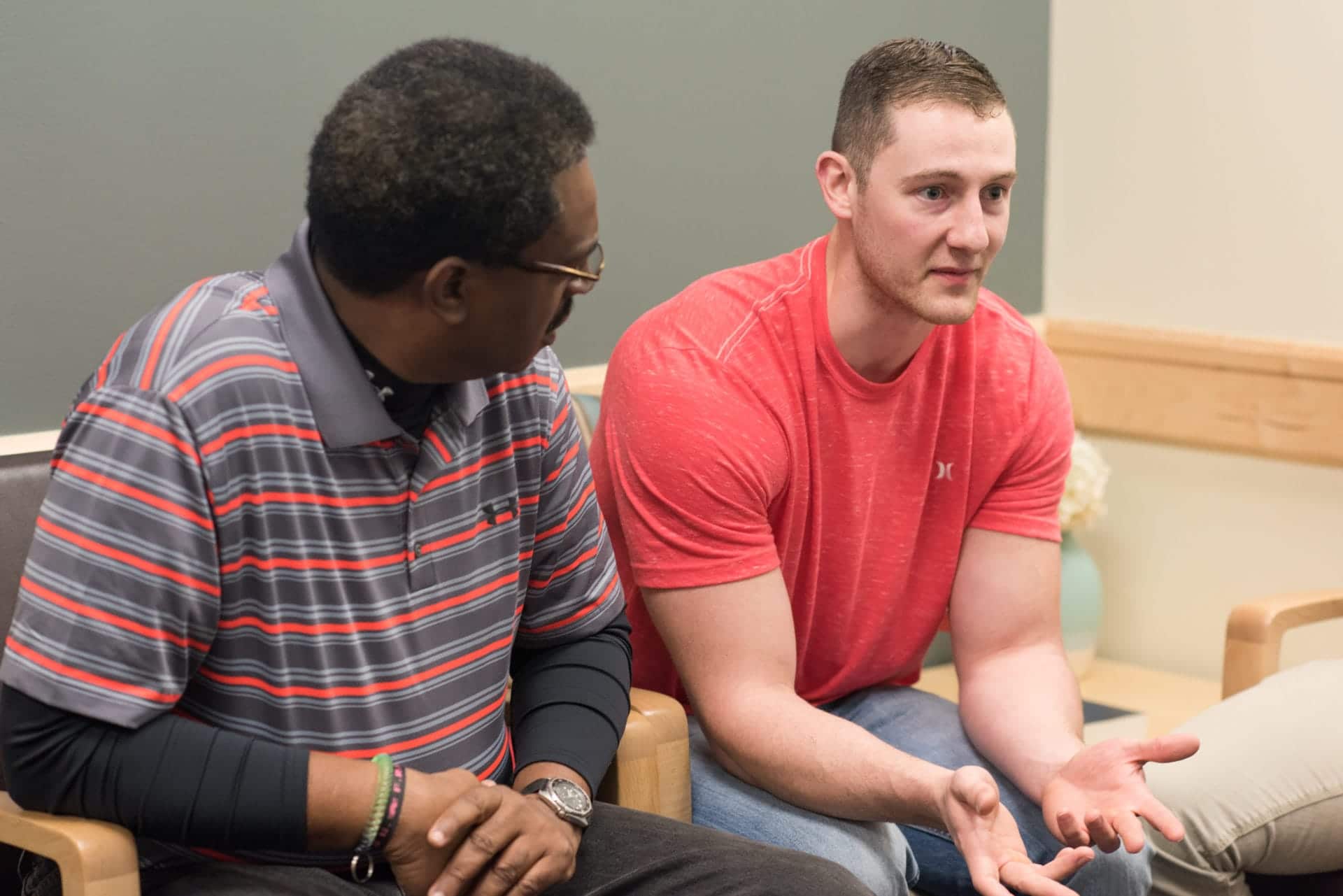

By: Michael Rass
A year ago, Lakeview Health completed the transition to full gender-responsive addiction treatment. Taking into account all the differences in the way women and men respond to specific treatment approaches improves the prospects for long-term recovery in both sexes. In both programs, three core values permeate the clinical program:
- The need for clear and honest communication
- Respect and trust of self and others
- Accountability for self and willingness to hold others accountable
Dr. Stephanie Covington is a pioneer in the field of women’s issues, addiction, and recovery. Her Helping Women Recover curriculum forms the basis for the gender-specific approach for the women’s rehab at The Rose of Lakeview. The Star of Lakeview is the men’s residential treatment program. “Clear and honest communication is one of the main challenges for men,” explains Lakeview therapist Dino Liverano. “Often, women share their emotions more naturally, while men perceive that as a sign of weakness.” Men tend to hide their feelings, and that is especially unhealthy when it comes to trauma and addiction. Many people with substance use disorders are trying to deal with traumatic experiences in their past. All staff at Lakeview in both programs have been trained in trauma-informed care and both sexes benefit enormously from this approach, especially in a gender-specific environment. A large majority of all people with addiction problems have suffered traumatic episodes but the specific trauma issues tend to be different for men and women. The most common trauma for women is sexual assault; for men, the most common issue is unresolved loss and grief. “Due to their perceived gender role, many men don’t process their grief after they experienced a major loss in their life,” says Liverano. Many self-medicate with drugs and alcohol instead. “We have had patients in trauma groups at Lakeview who hadn’t talked about their feelings of loss and grief with anybody for several years, sometimes for decades,” explains Liverano. “Only when they started sharing their feelings did they realize how significant the trauma was to them. In therapy, they might say things like ‘This actually meant something to me the whole time. I was just using drugs and alcohol to cover it up instead of talking to somebody,’” says Liverano. Other patients are combat veterans or police officers who are suffering from post-traumatic stress disorder after experiencing horrific episodes of violence. They come from a work environment where they were expected to show strength at all times. Opening up about feelings of sadness and anxiety is often perceived as weakness in such a setting and is consequently taboo. Many patients are surprised to be met with acceptance and understanding in the trauma group. The gender-specific environment is crucial. “Nobody needs to impress members of the other sex and everyone has had similar traumatic experiences. That creates a level of trust,” says Liverano. “The men learn that you can open up and trust someone, and they will not take advantage of you. Rather, they are going to relate to your problem.” Besides honest communication and trust, the third core value is accountability. The men look critically at what roles they have played in the past and what should change in their lives. Many men have done shameful things during active addiction and find it hard to be honest and open about them. “Accountability is not about beating yourself up about past mistakes,” says Liverano. “It is about learning from bad decisions. We aim for accountability with love and tolerance. It can be very empowering to say, ‘I am the one who did this, therefore, I am the one who can change it.’ It is very different from thinking, ‘This just happened to me therefore I have no control over it.’” All of these lessons can be more easily learned in a gender-responsive environment. This can be a lesson in itself. “Sometimes, patients come to The Star of Lakeview and say, ‘Wow! No women. I don’t think I’m going to like that.’ But by the end of their residential treatment, they realize that all they did at other rehabs was ‘talk to girls all day.’ At Lakeview, they are forced to deal with themselves without gender distractions,” says Liverano. “Men who really put a lot of effort into dealing with their issues are very appreciative of the gender-responsive setup when they leave because it changed the way they experienced the entire program,” say Liverano. “I get a lot of feedback from men saying, ‘This is the first time I was forced to confront myself, and it really turned out to be a beneficial thing!’”





